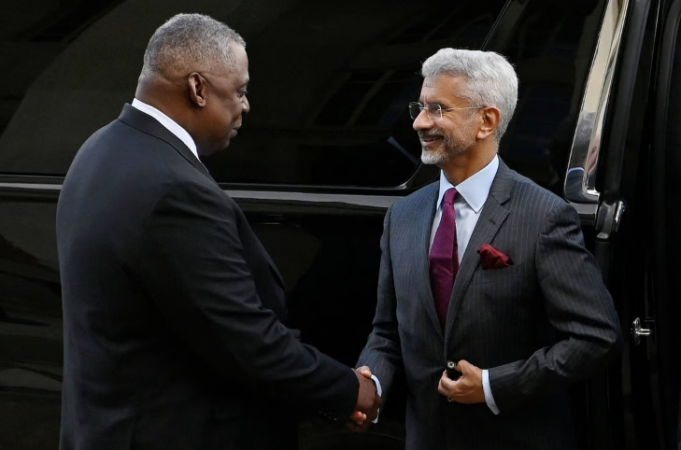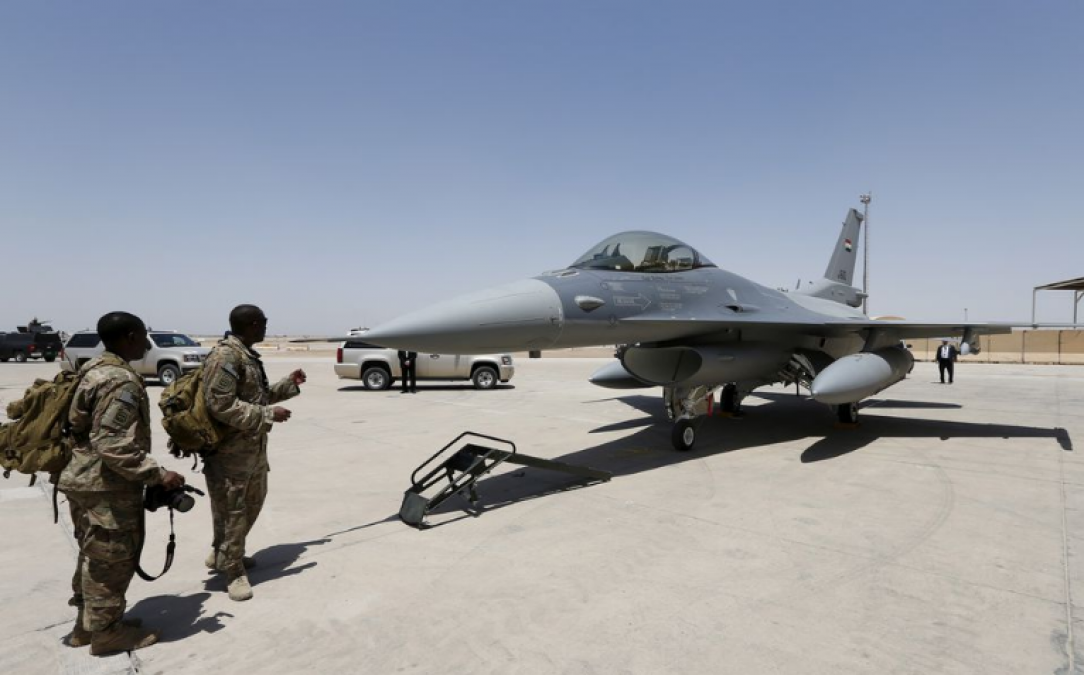
WASHINGTON: America's commitment on Monday to strengthen defense ties with India, a key ally in its Indo-Pacific security strategy to counter China's growing power, was hit by New Delhi's criticism of Washington over its support for Pakistan. Was.
The Biden administration's approval of this month's US$450 million package to maintain and upgrade Pakistan's F-16 fighter jets angered Indian Secretary of State Subrahmanyam Jaishankar on the same day that US Defense Secretary Lloyd Austin promised to increase US-Indian cooperation.
Discussing the F-16 capability, where everyone knows where they are deployed and how they are used, Jaishankar said, "For someone to say, 'I'm doing this because it's all Anti-terrorism material is, 'You are not fooling anyone. By saying these things'."
US issues dire warnings about the use of nuclear weapons by Russia in Ukraine
Jaishankar made this statement during the release of a book in Washington.
According to the US, maintaining Pakistan's F-16 fleet will improve Islamabad's ability to deal with current and potential counter-terrorism threats.
Austin and Jaishankar met later that day at the Pentagon, where, according to a press release, they "discussed new opportunities for bilateral defense industrial cooperation in support of India's contribution as a regional security provider."
To advance security, prosperity and transparency in the Indo-Pacific, the US "looks forward to working with India and like-minded partners," the statement continued.
It's possible that the right wing will turn against Ukraine soon

As a participant in the Quadrilateral Security Dialogue, India is regarded as an important US ally in the Indo-Pacific region to counter China's growing influence in the region. Last week, a Pentagon representative stressed India's importance to the US vision of a "free and open" Indo-Pacific.
In contrast, India and Pakistan have strained relations at the best of times because of mutual doubts born out of the 1947 establishment. Three wars have been fought between its South Asian neighbours, and New Delhi has long accused Islamabad of harboring and sending terrorists.
The United States' US$450 million security aid deal with Pakistan is the first of its kind since Biden's predecessor Donald Trump stopped providing aid to Islamabad in 2018. Trump claimed that Pakistan was funding insurgent groups fighting the US-backed government of Ashraf Ghani. In Afghanistan.
And while the US was once Pakistan's largest arms supplier, China now holds that title. Beijing satisfied 72% of Islamabad's major arms demand between 2017 and 2021, according to data released in March by the Stockholm International Peace Research Institute.
There are concerns about whether the effectiveness of the Quad could be compromised in light of India's displeasure over the latest F-16 deal.
However, Elizabeth Threlkeld, director of the Stimson Center's South Asia program, believes the Biden administration's engagement with both India and Pakistan, as it manages the inevitable challenges, makes sense in the grand scheme.
According to Threlkeld, the US and India disagree on Pakistani policy, but Washington feels the differences can be resolved.
The US places a high priority on working with India in the Indo-Pacific, and the increased cooperation between the two countries helps shield their relationship from the occasional rift over Pakistan.
Washington's twin interests were reflected in US Secretary of State Antony Blinken's Monday program: Hours after meeting with Pakistani Foreign Minister Bilawal Bhutto Zardari, America's top diplomat hosted a working dinner with Jaishankar on Monday.
Ned Price, a spokesman for the US State Department, on Monday described Pakistan and India as "partners with different points of view".
Price said, "In many respects, our interests are congruent, and our relationship with India is a self-sustaining entity. Our relationship with Pakistan is self-sustaining."